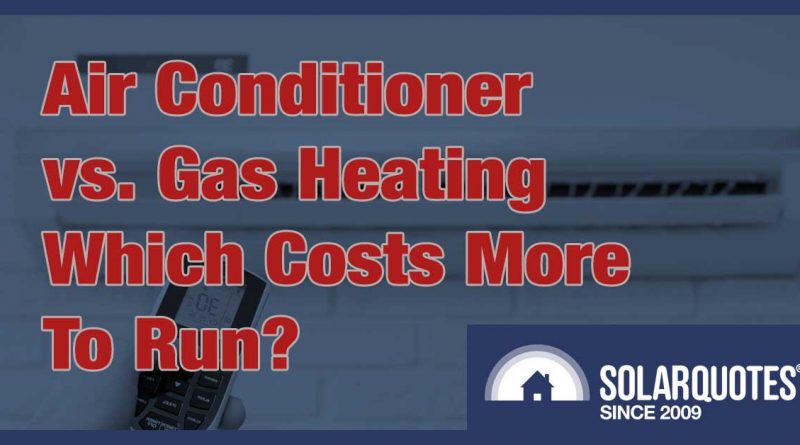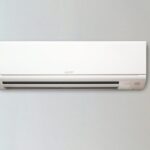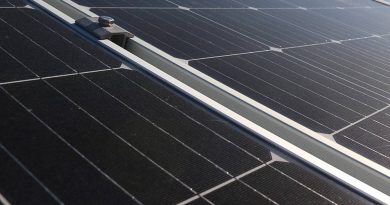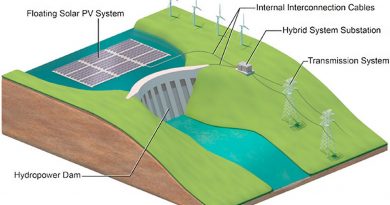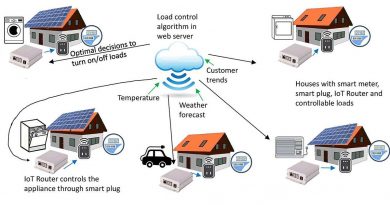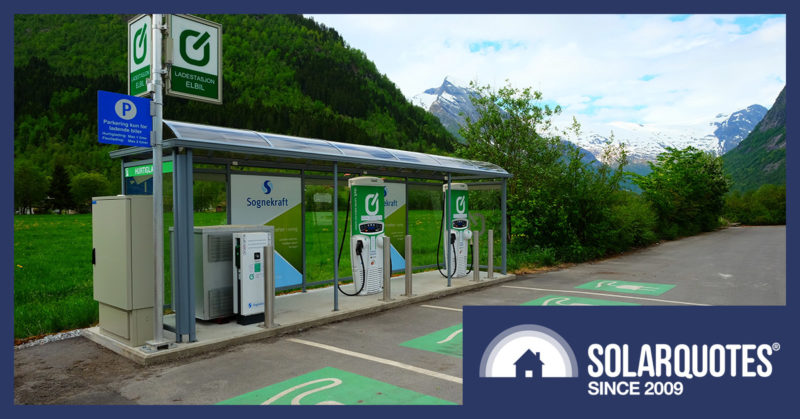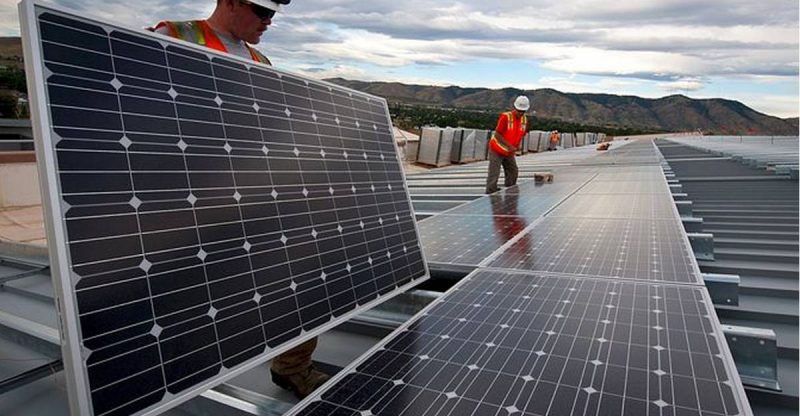Air Conditioners Will Heat Your Home Cheaper Than Gas. Here’s Why.
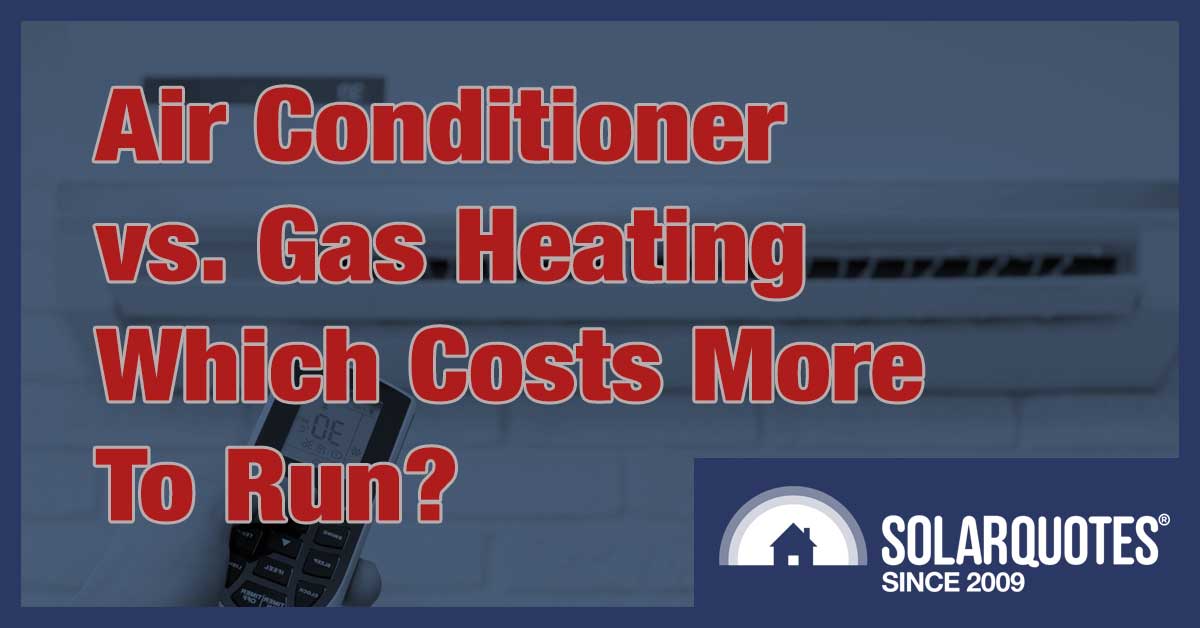

The best way to heat your home is with a reverse cycle air conditioner. This is true whether your goal is to save money or save the planet. In this article, I’ll explain no matter how crap your air conditioner is, you’re likely to be financially better off using it for heat instead of gas.
Depending on where you are and the efficiency of your air conditioner, it’s possible to cut your heating bills by more than half. The greatest savings are in Western Australia. Thanks to having Australia’s highest gas prices and lowest solar feed-in tariff, in Perth a solar-powered air conditioner can provide heat at under 2% the cost of gas.
I’m only going to offer economic and environmental reasons for using air-con heating. If you just happen to love the smell of gas in the morning, I can’t help you1. Feel free to critique my savings analysis in the comments, but if you’re simply in love with methane, please try very hard to keep it a secret love.
In this article, I’ll cover:
- The efficiency of gas heating.
- How modern air conditioners can easily be 5 times more efficient than gas.
- The cost of heating with gas compared to reverse cycle air conditioners.
- Why you’d have to be nuts not to use an air conditioner for heat in Perth.
Once you’ve read that, you’ll see — while Jumping Jack Flash may be a gas, gas, gas — what you’ll really want to keep your home warm, warm, warm, is an efficient reverse cycle air conditioner.
[embedded content]
Gas Efficiency Under 90%
Heating with gas is very straightforward. Flammable natural gas is piped into your home where it’s set on fire — preferably inside some sort of heater — and releases heat. Unless a gas heater is dangerously defective, the heater will convert all the chemical energy in the gas into heat energy. Even all the light it gives off will end up as heat in your home if you shut the curtains. This may make gas heating seem like it should be 100% efficient, but in practice it’s not. Natural gas heaters often only have an efficiency of around 70%.
There are some minor reasons why it’s not 100%. Gas in winter can be cold when it enters your home, and its pipe can conduct heat out. But the main reason is ventilation.
There are two basic types of gas heaters:
- Flued, and…
- Unflued.
A flued gas heater has not come down with a virus. It means it has a chimney or other dedicated ventilation that allows carbon dioxide and water vapour from combustion to escape outside. Unflued heaters are potentially more efficient, but if you try to make them very efficient by sealing the room, they will kill you. Because of this danger, unflued heaters are restricted in how much gas they can burn and rooms they are in are required to have ventilation. Exact requirements can vary from state to state.
A flue allows heat to escape, and room ventilation does the same. This results in the efficiency of gas heaters being as low as 60%. The average efficiency of existing heaters may be 70-80%. The highest efficiency for a correctly installed gas heater that meets state and Australian standards may be 90%.
Gas Is A Health Hazard
Natural gas is mostly methane. When burned this releases carbon dioxide (CO2) and water vapour.2 The CO2 from an unflued gas heater is not good for your health. If the heater is defective, it can produce carbon monoxide that your body can’t detect and which can harm or kill you. For this reason, it’s recommended to have gas heaters regularly serviced and not to place them in bedrooms.
If you don’t believe me, watch this disturbing Irish cartoon:
[embedded content]
Water vapour from burning gas can also be a problem. While a little humidity can be nice in winter, too much can lead to dampness, mould, and mini-waterfalls of condensation running down your windows.
Reverse Cycle Air Conditioner Heating Efficiency
Only air conditioners that are ‘reverse cycle’ can provide heat. Instead of only pumping heat out of your home and cooling it, they can reverse the cycle and pump heat from the outside air into your home. Most air conditioners on sale are reverse cycle but don’t accidentally buy one that only cools.
Air conditioners are far more efficient at heating than gas because, instead of using energy to create heat directly, they use energy to move heat around. As a result, even the worst air conditioner you can buy is several times more energy-efficient than using gas.
Because air conditioners pump heat around, they’re called heat pumps. If you want to know how to choose an energy-efficient one, I recently wrote an article on how the new air conditioner labelling system works. I recommend getting the most efficient reverse cycle air conditioner you can find that doesn’t have a ridiculous price tag designed to suck in rich hippies.
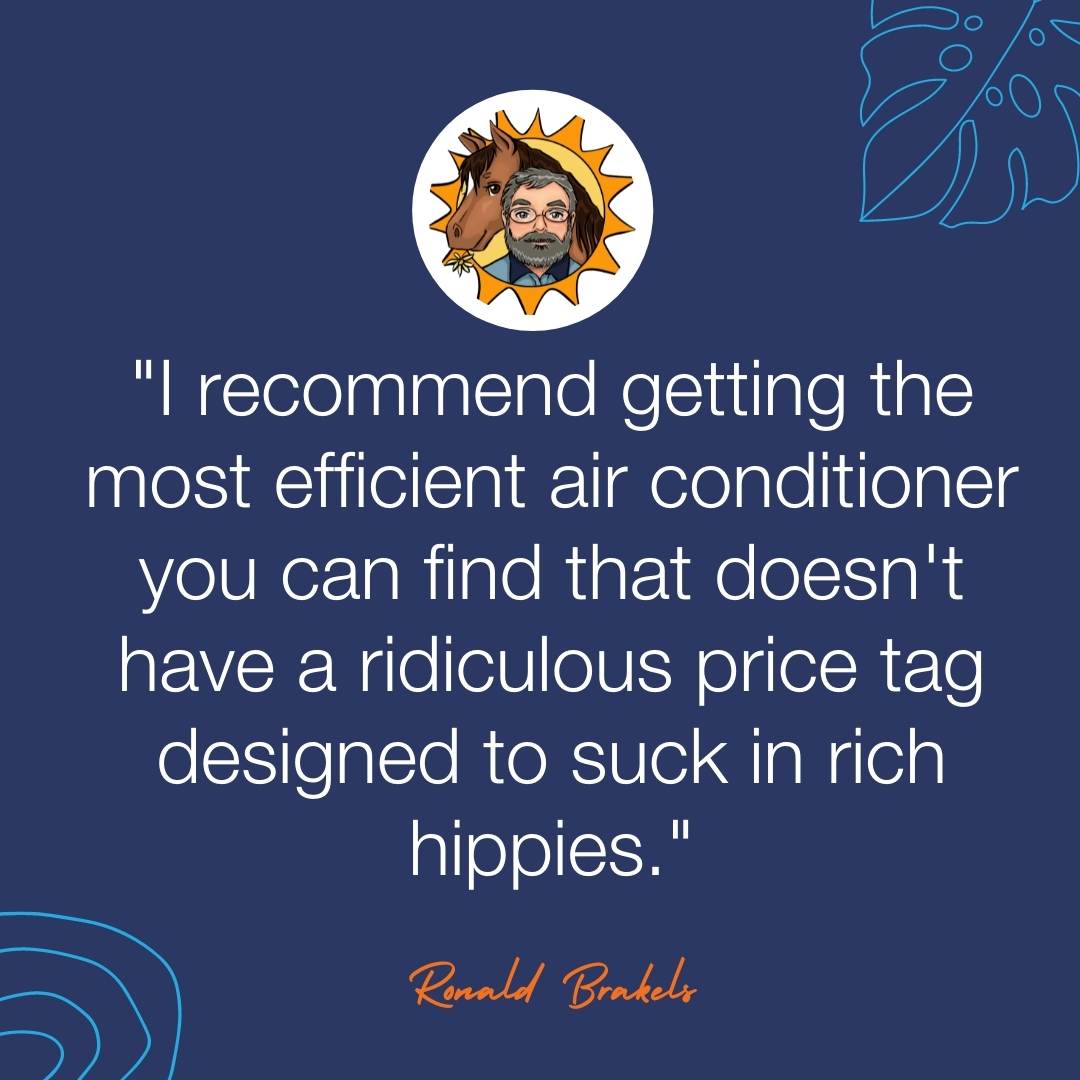

But even the worst air conditioner you can buy will provide around 3.5 kilowatt-hours of heat for every kilowatt-hour of electricity consumed, giving them an effective energy efficiency of around 350% and four or more times as efficient as a typical gas heater.
Kilowatt-Hours And Megajoules
Electricity is sold by the kilowatt-hour. In normal conversation, “kilowatt-hour” refers to electrical energy, but it can be any kind of energy including heat. If you use one kilowatt-hour of electricity in a basic electrical resistance heater like one of these…
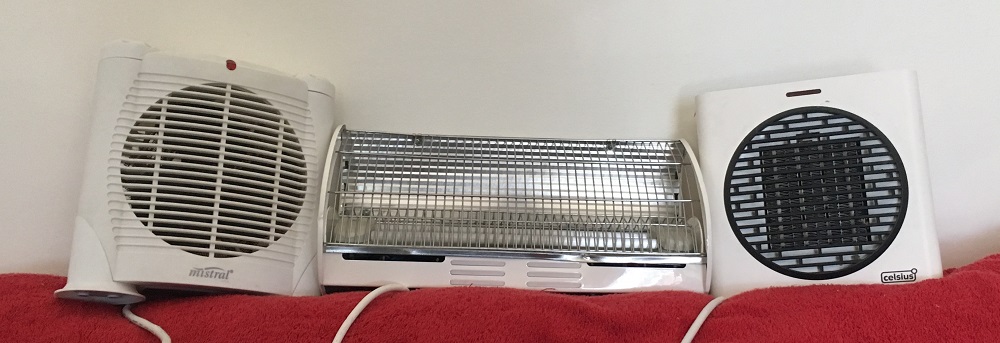
Don’t turn these on when they’re sitting on a red cushion unless you’re eager to see orange flames.
…it will convert that electrical energy into one kilowatt-hour of heat energy. But an air conditioner with 3.5 Energy Stars for heating will pump a minimum of 5 kilowatt-hours of heat energy into your home for every kilowatt-hour of electricity it consumes. This makes it at least 500% efficient.
Gas is paid for by the megajoule (MJ). This is just a different measure of energy. For easy comparison, I will convert megajoules into kilowatt-hours. It’s not difficult to do as there are simply 3.6 megajoules in a kilowatt-hour.
Gas Supply Charge Not Included
I am not considering the daily supply charge when determining the cost of gas. This charge, along with the cost of regularly servicing gas appliances to maintain safety, is an excellent reason to stop using gas entirely.
Cost Of Gas By Capital
I’ve looked online to find the lowest cost gas plans in each capital. Except for Darwin. If you heat your home there all I can say is…
“Welcome to the planet Earth and enjoy your stay. Please don’t try to convince the locals the place would be better with more greenhouse gases in the atmosphere.”
With most gas retail plans, the cost per megajoule falls once consumption exceeds a threshold. To work out the average cost of gas for a household, I’ll need to decide how much it consumes. Most Australian households use around 30 megajoules or less per day in winter, but in Victoria, it is nearly 100. To keep things easy, I will base the cost of gas on households using 100 megajoules a day.
In Tasmania, they average over 200 megajoules a day in winter, but they pay a flat price for gas, so what they’re charged doesn’t change with the amount used.
The average cost of the cheapest gas I could find in all state capitals and Canberra3, in megajoules and kilowatt-hours, is:
- Adelaide: 3.2 cents per megajoule, 11.6 cents per kilowatt-hour
- Brisbane: 4.1 cents per megajoule, 14.8 cents per kilowatt-hour
- Canberra: 3.5 cents per megajoule, 12.6 cents per kilowatt-hour
- Darwin: Don’t be silly
- Hobart: 4 cents per megajoule, 14.4 cents per kilowatt-hour
- Melbourne: 1.5 cents per megajoule, 5.6 cents per kilowatt-hour
- Perth: 6.9 cents per megajoule, 24.7 cents per kilowatt-hour
- Sydney: 2.2 cents per kilowatt-hour, 8.1 cents per kilowatt-hour
Here’s a graph comparing the per-kilowatt-hour cost of gas with the per-kilowatt-hour cost of grid electricity4 in each (sensible) capital:
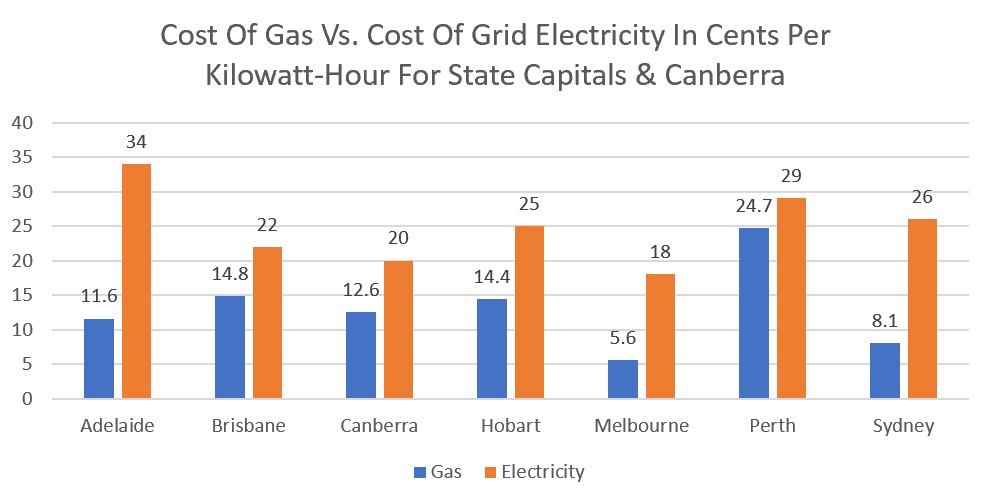

As you can see, a kilowatt-hour of gas is always cheaper than a kilowatt-hour of grid electricity. In Adelaide, Melbourne, and Sydney gas is under one-third the cost of grid electricity. Even in Perth, which has the most expensive gas, an efficient gas heater will still be cheaper to run per kilowatt-hour of heat output than an electric resistance heater.
So thank goodness everyone reading this is smart enough to use an air conditioner for heat rather than some dinky, little, electric resistance heater.
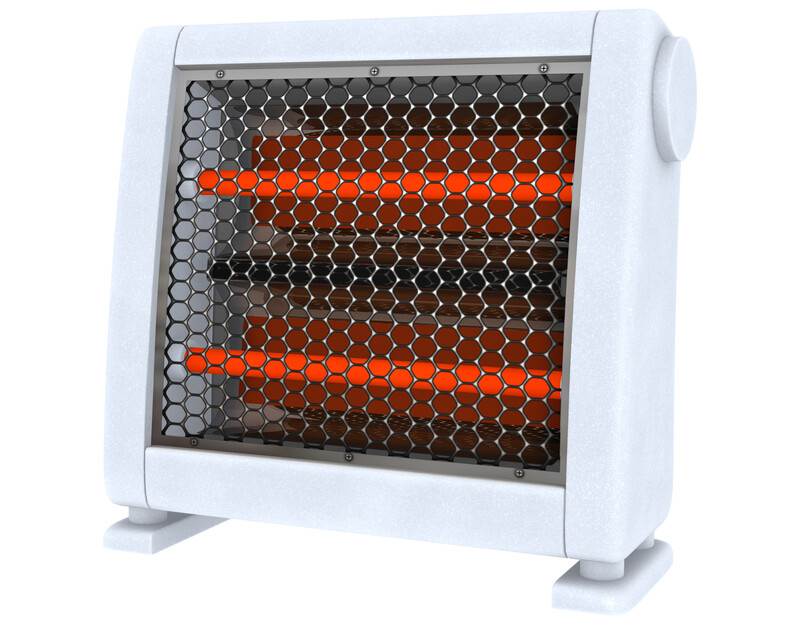

Gas Heating Vs. Air Conditioner — Almost Worst Case
Twenty years ago, it was possible to buy a reverse cycle air conditioner so inefficient it would only move 2 kilowatt-hours of heat into your home for every kilowatt-hour of electricity consumed. But for 10 years, the minimum efficiency level has been roughly 350%. Of course, this isn’t an exact figure. It will depend on the air conditioner’s characteristics and where it’s installed, but any air conditioner under 10 years old is likely to provide at least three times as much heat energy as it uses in electrical energy.
Comparing a gas heater with an unrealistically high efficiency of 90% to an air conditioner with a low 300% efficiency gives the following:
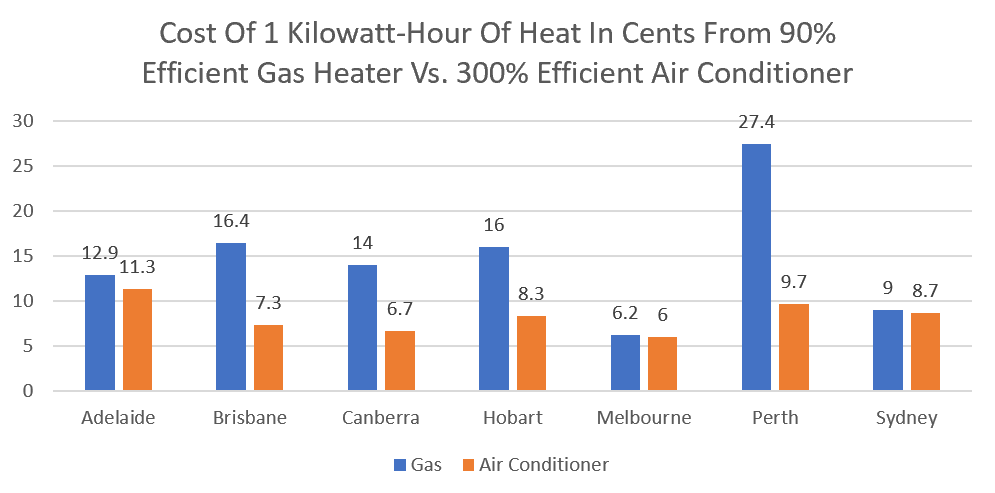

Even in almost a worst-case scenario for an air conditioner under 10 years old, they always provide heat at a lower cost than gas.
Gas Heating Vs. Air Conditioner — Realistic Case
In reality, most people’s choice won’t be between the most efficient natural gas heater possible and the least efficient reverse cycle air conditioner on the market. If we instead compare a gas heater with a more typical efficiency of 75% with an air conditioner that has — going by the new energy labels — 3.5 Energy Stars out of 10 for heating, the results look far better for air conditioners. A 3.5 star rating means the air conditioner will have an effective efficiency of at least 500%:
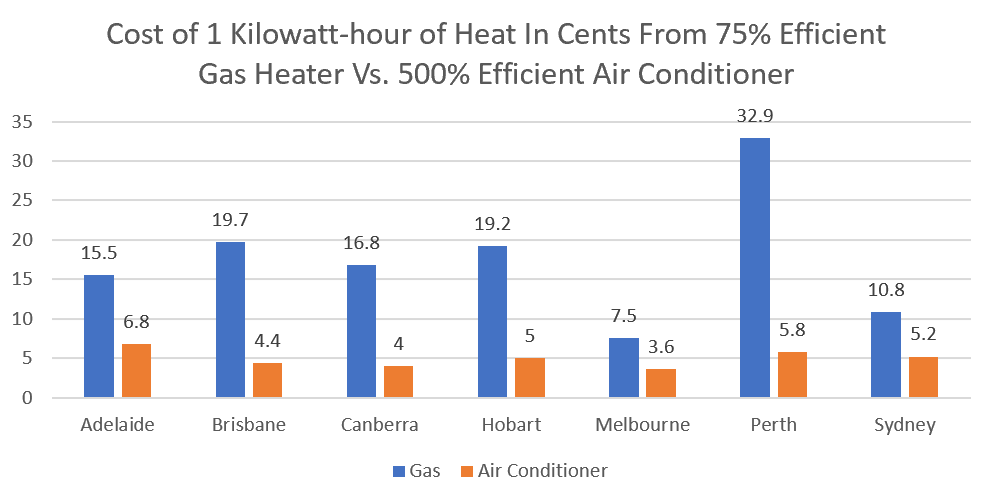

As you can see, with this more realistic comparison, air-con heating is way cheaper than gas. Even in Melbourne — the best location for gas heating — air conditioner heating is under half the cost of gas.
While you may have to pay more for a reverse cycle air conditioner with 3.5 Energy Stars than one with only a couple, the extra cost shouldn’t break the bank and there are many available with this many stars or more.
Time-Of-Use Tariffs & Heating
So far, I’ve only shown the cost of grid electricity on a flat tariff. With a time-of-use tariff, electricity costs can be considerably higher during peak periods. But this is not necessarily a problem for the cost of air-con heating. Because it’s possible to be flexible with heating, a time-of-use tariff can reduce costs.
Every air conditioner I’ve ever met has had a built-in timer5. This makes it easy to warm your home before the start of a time-of-use peak period. Then, if you want to reduce electricity use further once the peak period starts, you can turn the thermostat down or turn the air conditioner off entirely.
Solar Power Saves On Air-Con Costs
Having rooftop solar panels will further improve savings if you use air conditioner heating during the day. This is because savings on electricity bills increase when you consume your own solar energy rather than grid energy — except for some households that have old, high, solar feed-in tariffs locked in.
If you’re out during the day, solar may not lower your cost of heating, but you can try setting a timer so your reverse cycle air conditioner warms your home using solar energy before you get home in the evening. But your home is really drafty and bad at retaining heat, this may not help.
Air-Con Emissions Less Than Gas
Sometimes natural gas salespeople will claim it’s a low emission choice for heating, but this only applies when it’s compared to electrical resistance heating. Even an air conditioner entirely powered by coal can result in lower emissions than those that directly result from burning gas for heat, as the following three steps show:
- Burning methane in a 75% efficient gas heater to provide one kilowatt-hour of heat will produce 237 grams of CO2 from combustion.
- In Australia, coal power emits around 1 kg of CO2 per kilowatt-hour of electricity generated.
- An air conditioner with 3.5 Energy Stars for heating is at least 500% efficient and would produce around 200 grams of CO2 or less if entirely powered by coal.
Fortunately, our grid generation is only about 62% coal, and CO2 emissions per kilowatt-hour of electricity are likely to be around 656 grams. This means, when powered by the grid, even the worst air conditioner you can buy these days will result in lower emissions than burning natural gas.
The emissions advantage of grid powered air conditioners will improve as fossil fuel is driven from the electricity market. Emissions from natural gas will remain much the same6.
Emissions from natural gas are even worse than they appear because additional greenhouse gas emissions occur from its extraction, refining, and distribution. Some of this is from leaks, which is a major problem because methane is a greenhouse gas around 32 times more powerful than CO2. There are disputes over how much fugitive emissions amount to, so I don’t have a definite figure. But it looks to me they could easily increase greenhouse gas emissions from domestic gas by over a quarter.
Perth Is Best
Perth is by far the best location for air conditioner heating. Not only do they have the most expensive gas, but they also have the lowest solar feed-in tariff. This means it costs very little to heat homes with an air conditioner during the day. For example, a WA home receiving the low DEBS solar feed-in tariff using a reverse cycle air conditioner powered by solar with an efficiency of 500% will pay less than 2% the cost of gas before 3:00 pm. After that, it will increase to 6% the cost of gas, but that’s still pretty good.
Air Conditioner Heat Beats Gas
No matter how old your reverse cycle air conditioner is, you’re likely to be financially better off using it for heat than gas. The only exception may be if you’re in Melbourne and your air conditioner is ancient and one of the least efficient ever sold. But if you have solar panels and sometimes heat your home during the day, you can be confident you’ll save money no matter how crap your air conditioner may be.
Footnotes
- Warning: Methane — the main component of natural gas — is odourless. You can only smell it in domestic gas because stinky methanethiol gas is added to it. ↩
- Using bottled LPG, there will be more CO2 and less water vapour because LPG contains more carbon and less hydrogen. ↩
- Note that just because I have given a price for piped gas in a city, it doesn’t mean gas will be available everywhere in that city. For example, in Hobart, the piped gas network is quite limited. ↩
- The grid electricity prices are from low-cost electricity plans for solar households that were the best I found. A non-solar household may be able to find a slightly cheaper plan. ↩
- In the old days, they were clockwork and would tick like a cartoon bomb. ↩
- In South Australia, a little hydrogen is being added to natural gas at huge expense, but the amount can’t safely go above 5% without ripping out gas pipelines and replacing them, as well as replacing gas appliances. I’d describe adding hydrogen to natural gas as putting pig on a lipstick, except that activity is a lot cheaper and some people enjoy it. ↩
Original Source: https://www.solarquotes.com.au/blog/air-conditioners-vs-gas-heating/

